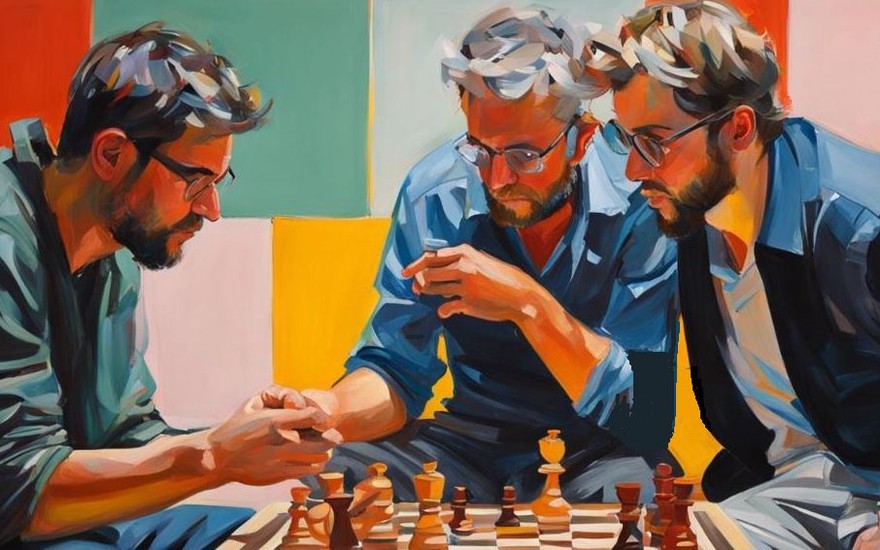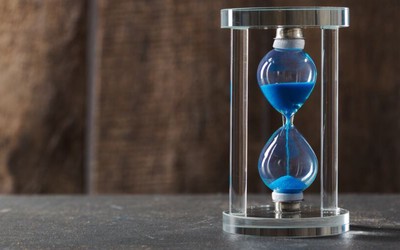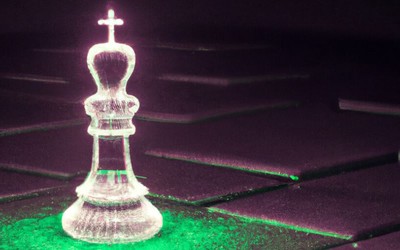
Fair play in chess
Chess is a wonderful sport that requires the development of cognitive, emotional, social and physical skills. Chess is not only a competition for victory, but also a way of expressing ourselves, communicating and educating ourselves. The science sport teaches us values such as honesty, discipline and respect. It is an activity for ladies and gentlemen.However, sometimes we forget these values and let ourselves be carried away by the desire to win at all costs, regardless of the means we use. We become people who seek to be "the craftiest", regardless of the fact that we go over the heads of others. Who take advantage of any opportunity to take advantage, who resort to cheating to obtain benefits. We justify ourselves by saying that it is part of the strategy or tactics, that it is the game of the smartest, that the "live and the sucker lives", that everyone does it, that the end justifies the means. But in the end, cheating is cheating. It does not lead to anything good; it makes us lose confidence in ourselves and in others; it affects our character; it takes us away from the essence of sport, which is fair play, respect for rules and rivals, recognition of merit and effort; it makes us lose dignity and honor; it makes us reevaluate if we are really "Gens una sumus", sometimes it seems that it is not so.
Let us not teach our athletes to act in bad faith, let us teach them to be people of integrity, people who act ethically, with principles, with coherence; who are proud of what they do and how they do it; who know that true success is not measured by the result, but by the road they have traveled; people who contribute to the development of sport and society. It is possible that for many of us the phrase "let he who is without sin cast the first stone" applies, it is also possible that many of us have "damaged our minds" when we are close to winning something important. Where the possibility of fixing is "served", but it is there where the conscience of fair play must prevail. A complex matter, but with time we get used to the fact that it is much better when we win on merit. It is never too late to straighten the path, clearly the honor will not be completely cleansed, but we will be able to contribute to the formation of new generations.
Some final remarks.
-Let's stop normalizing the fixing of games, the buying and selling of points, losing on purpose, looking for flaws in the rules to justify foul play. As I mentioned before, cheating is cheating everywhere you look. Much has already been written about cheating during games, with the help of human or technological tools, but obviously it makes no sense and is threatening the honor of our sport.
- Let's not justify ourselves with the cheating that is done in other sports. Nor with what other people do, let's make a difference. Let's worry about doing things right ourselves, fair play is not a competition of who acted worse.
-Let's always act well regardless of whether we are being watched or not. let's do it on principle.
- It is not a matter of looking to see if the one who judges me also has sin, and expose it publicly in order to cushion my own sin. It is about having courage, assuming bad actions, and improving.
- Many of us want our sport to be part of the Olympic Games program, but if we continue to normalize foul play we will not have a chance, we must first earn respect as true athletes. "Olympism is a philosophy of life, which exalts and combines in a harmonious whole the qualities of body, will and spirit. By associating sport with culture and training, Olympism aims to create a way of life based on the joy of effort, the educational value of good example and respect for universal fundamental ethical principles." Olympic Charter, 2004
Chess is a sport that, after centuries of history, still retains the magic that manages to trap, in a world of possibilities, two rivals who face each other not only for victory but also for honor. Lotero, 2022
Original article
https://octopuschess.com/articulo/865/el-juego-limpio-en-el-ajedrez
More blog posts by TheBigPhoenix

NOBODY WANTS TO LOSE
More than a decade ago I had the opportunity to attend as a coach to a world championship of minor c…
LAS MODALIDADES RÁPIDAS COMO HERRAMIENTA DE ENTRENAMIENTO EN EL AJEDREZ
Desde hace ya varios años, las modalidades rápida y relámpago hacen parte de los eventos oficiales d…
LAS PLATAFORMAS ONLINE COMO HERRAMIENTAS PARA EL CONTROL DEL ENTRENAMIENTO
Está claro que existen diferencias importantes entre el ajedrez online y el ajedrez presencial: La p…
